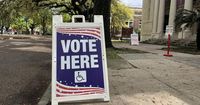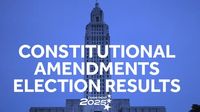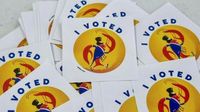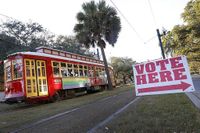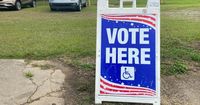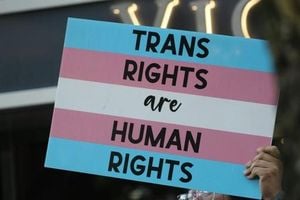In a significant political setback for Louisiana Governor Jeff Landry, voters decisively rejected all four proposed constitutional amendments in the state on Saturday, March 29, 2025. Nearly two-thirds of the electorate turned down the amendments, which included a controversial overhaul of the state's tax and budget laws.
The election results indicate a clear disapproval of Landry's ambitious proposals, particularly Amendment 2, which aimed to lower the maximum income tax rate and restrict annual state budget increases. This amendment was expected to shift hundreds of millions of dollars from state savings accounts into the general fund, allowing for easier spending by the governor and state legislators.
Had Amendment 2 passed, it would have also made temporary stipends of $2,000 and $1,000 for public school teachers and support staff permanent. However, with its failure, educators now face the risk of losing these stipends, as Landry's current budget proposal does not allocate funds for them.
In a statement following the election, Governor Landry attributed the defeat of Amendment 2 to billionaire George Soros, a target of conservative criticism for his support of liberal causes. “Soros and far left liberals poured millions into Louisiana with propaganda and outright lies about Amendment 2,” Landry stated. “Although we are disappointed in tonight’s results, we do not see this as a failure. We realize how hard positive change can be to implement in a state that is conditioned for failure.”
Landry's remarks came after the Open Societies Foundations, associated with Soros, reportedly contributed $1.25 million to efforts opposing Amendment 3, another measure on the ballot that sought to make it easier to prosecute minors as adults for certain crimes. This amendment was also overwhelmingly rejected, with 66% of voters opposing it.
Critics of Amendment 3, including national criminal justice reform organizations, argued that it would further entrench a punitive approach to juvenile crime, rather than addressing the root causes. The Vera Institute of Justice, which actively campaigned against the amendment, emphasized that voters are increasingly rejecting incarceration as the sole solution to crime.
“In defeating Amendment 3, voters made clear their desire for the things that actually make our communities safer — like quality education and opportunity,” said Sarah Omojola, Louisiana director for the Vera Institute.
The other two amendments, Amendment 1 and Amendment 4, were also rejected by significant margins. Amendment 1 sought to grant the Louisiana Supreme Court the authority to discipline out-of-state lawyers and allow the legislature to create specialty trial courts, while Amendment 4 aimed to change how judicial vacancies are filled. Both measures faced criticism for their complexity and lack of clarity, with opponents arguing that they would enable unnecessary judicial expansion.
Voter turnout for the election was reported at just over 21%, which some analysts suggest may have affected the results. John Couvillon, a Louisiana pollster, noted that higher turnout among Democrats and Black voters during early voting indicated a shift in political engagement.
“I have just never seen an early vote this strong for Democrats,” Couvillon remarked, pointing to a potential backlash against the Republican agenda in the state, particularly given Landry's alignment with former President Donald Trump.
Opposition to Amendment 2 also came from within conservative circles, with some activists and religious groups expressing concerns that the amendment would undermine existing protections for property tax exemptions. Woody Jenkins, chairman of the East Baton Rouge Republican Party, emphasized that voters were hesitant to support complex changes in the constitution without a clear understanding of the implications.
“Members of the public don’t want to vote on something they don’t understand,” Jenkins stated. “They don’t want a massive revision of the constitution with everything but the kitchen sink in it.”
Despite the overwhelming rejection of all four amendments, Landry and his supporters remain optimistic about future efforts to push for tax reforms and budget changes. The governor expressed his commitment to continue advocating for policies he believes will benefit Louisiana residents.
As the dust settles on this election, the results serve as a stark reminder of the challenges facing the Landry administration. With significant voter pushback against his proposals, the governor may need to reassess his approach to governance in a state that has shown a willingness to reject even the most ambitious of reforms.
The “No to Them All Coalition,” which campaigned against all four amendments, celebrated the election results, calling it a victory for democracy and the people of Louisiana. “Voters saw through the smoke and mirrors and saw that these amendments were not written with our interests at heart,” the coalition stated in a post-election statement.
As Louisiana moves forward, the implications of this election will likely resonate in future legislative sessions, as both sides of the political spectrum seek to understand the shifting dynamics of voter sentiment in the state.
